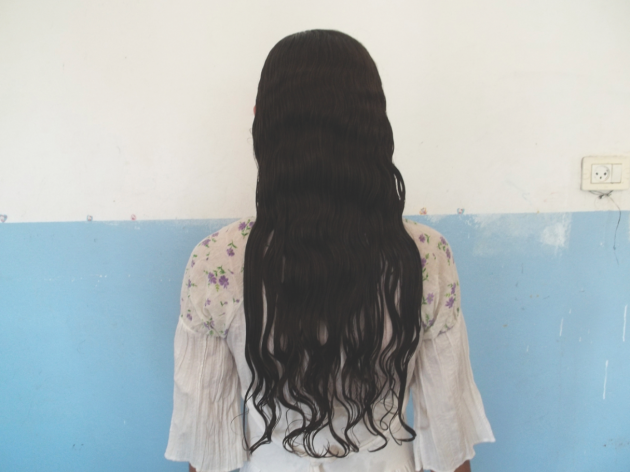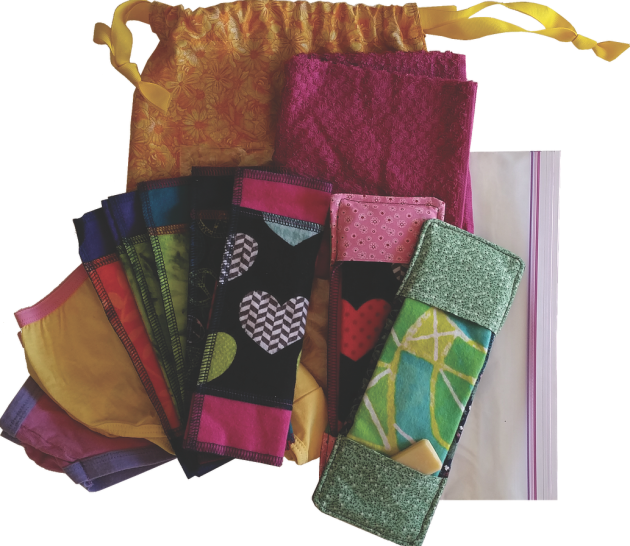What To Follow Now
This Place

Wendy Ewald, “At Home,” photograph by Amal, Negev Desert, 2012, ©Wendy Ewald, all rights reserved.
Photography can pose essential questions about culture, society and the inner lives of individuals. So photographer Frédéric Brenner, perhaps best known to Lilith readers for his 1994 portrait of 10 women wearing tefillin, invited 12 internationally acclaimed photographers to each spend six months exploring the complexity of Israel and the West Bank, with all the rifts and paradoxes of this important and much contested area. Several key themes emerged: family, identity, home, the environment. And the Israeli-Palestinian conflict, sometimes in ways that are not immediately apparent. The photographers, all outsiders to Israeli and Palestinian society, represent an array of nationalities, cultures and visual grammars. Charlotte Cotton has curated an exhibition of 600 of their photos (see right), now at the Brooklyn Museum through June 5, 2016 and then traveling; there’s also an illustrated catalogue and albums for each photographer.
brooklynmuseum.org, this-place.org
Days for Girls

The cycle of global poverty is broken when girls stay in school. But if you’re menstruating and have no sanitary supplies other than leaves, mattress stuffing, newspaper, corn husks, or anything else you can find, you can miss up to 2 months of education and opportunity every year. Don’t be surprised to know that this issue is key to social change for women all over the world. Days for Girls International is a grassroots nonprofit advocating for girls’ dignity, reproductive health awareness, education and sustainable feminine hygiene. Volunteers make attractive cloth kits for supplies; girls are eager to own and carry them. Learn more at daysforgirls.org
We Are Uprooted
Infertility isolates. A new nonprofit organization provides support around fertility journeys, educates and sees itself as a national voice in this nascent field. Uprooted is developing a mentorship program to connect people experiencing fertility issues, and provides Jewish perspectives and resources on infertility through a blog and other channels, plus resources for synagogues to support men and women struggling to grow their families. weareuprooted.org
Secular in Israel
There has typically been only one way for Jews to get married in Israel — and that’s via the government-sanctioned Orthodox rabbinate. Now Havaya-Israel, a non-profit organization, arranges secular marriages and Jewish lifecycle ceremonies. Its aim? To change the societal norm and enable Israelis who seek to marry to choose a ceremony that expresses their personal values. The organization says it sees this evolution as aligned with the process that gave birth to the modern Hebrew language and shaped new Israeli literature, songs, plays and fine arts. Havaya-Israel is a flagship project of Israel Hofsheet (Be Free Israel), which supports Jewish pluralism, opposes the segregation of women in the public sphere in Israel, and supports LGBT rights, and marriage and divorce free of religious constraints. bfree.org.il/
And You Are Above All the Rest
Recalling by this phrase from Proverbs (in Hebrew V’At Alit Al Kulana), Miriam Stern has created installation art inspired by her having grown up sitting in the women’s section of a synagogue, high up in a balcony not close enough to see for herself that the Torah was made of parchment and was handwritten in beautiful script. Three of the five restored ancient synagogues in the Old City of Jerusalem have balconies that still function as women’s sections today, so Stern measured the distance from the ark to the women’s section in these synagogues. Her installation asks: What is the social motivation to put women on a completely different floor in a balcony so far away? Through May 15, part of the group show “Sacred Space, Holy Spaces” at Nails in the Wall, The Gallery at St. Luke’s in Metuchen, NJ.
nailsinthewall.org, miriamstern.net
“How a Poem Begins”

Rahel Bluwstein (1890–1931), known simply by her first name, was one of the most important poets of pre-State Israel. Now, printmaker and book artist Lynne Avadenka responds to the imagery of Rahel’s poetry and to the landscapes the writer lived in and loved in the Galilee, Tel Aviv and Jerusalem, engaging in a visual dialogue with the poems through color etchings, a folding screen and a multi-media installation. The exhibition also incorporates photography and ephemera from the early 20th century, overlapping with Rahel’s life in Israel weaving together themes of artistic inspiration, women’s creativity and the power of connecting words to images. Through July 23, 2016 at Yeshiva University Museum in New York, yumuseum.org
Proper Lady
The song “Just Another Color,” about a woman who rebels against the “male gaze,” comes from American-born Israeli songwriter, singer and guitarist Erez Sivan. Her ironically titled debut album, PROPER LADY, explores how men try to control women’s bodies (“Her legs aren’t tied by you” is one of the lines of the refrain).
Orthodox LGBTQ Youth
Lesbian, gay, bisexual, and transgender (LGBT) Jews and their families in the Orthodox community now have JQY. With special attention to youth, young adults and their families, this organization’s programs serve all ages, ranging from Shabbat and holiday meals to a speakers’ bureau, a video library, meetings and support groups for young people and their parents. jqyouth.org
Ladino for Children
Typically Ladino songs are sung at family gatherings and tell epic tales of high drama, marital infidelity and heartbreak. The songs relating to children’s experiences are few and far between. (Flory Jagoda’s beloved Hanukkah song “Ocho Kandelikas” is one of the few you might know.) Sarah Aroeste, singer and Ladino music champion, was looking for a way to share her heritage with her children. Finding so little material, she wrote her own lyrics and music to create a new album, Ora de Despertar (“time to wake up”) that includes songs about daily activities as well as original lullabies. saraharoeste.com
To Welcome & Connect, Not Push
Honeymoon Israel offers highly subsidized, 9-day immersive trips to Israel for couples, along with local follow-up programming with the broad agenda of helping you have a great experience and deciding on your own terms how to be involved with the Jewish community. At least one partner needs to be age 40 or under, and Jewish, broadly defined — that is, having a Jewish parent or grandparent, or having had completed conversion. Jewish/Jewish, interfaith and LGBTQ couples encouraged to apply. At least one partner must have no prior organized Israel trip experience as a teen or adult. More details at honeymoonisrael.org.
Compiled by Naomi Danis.
For more of what’s happening, follow Lilith on Facebook and Twitter, and visit Lilith.org to sign up for Lilith’s free email newsletter. Send ideas for this section to info@Lilith.org.
 Please wait...
Please wait...